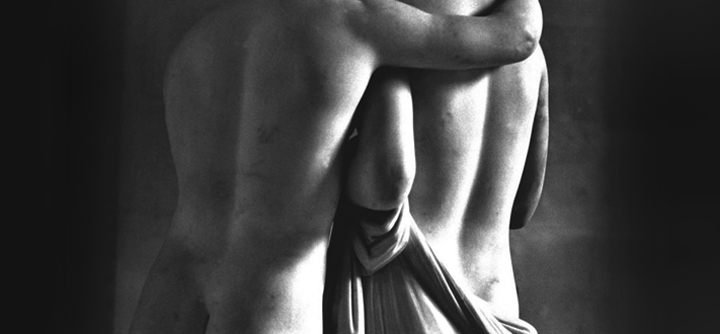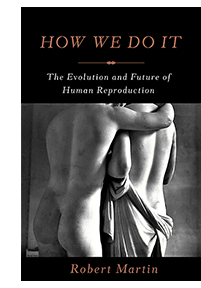
(Photo courtesy Robert Martin)
Talking reproduction with Robert Martin.
 When Robert Martin, member of the Committee on Evolutionary Biology and emeritus curator of biological anthropology at the Field Museum, wrote a book about the evolution of human reproduction and child-rearing practices, he wanted to call it Natural Mothers. His publisher, Basic Books, preferred the title How We Do It—with a picture of a half-peeled banana on the cover.
When Robert Martin, member of the Committee on Evolutionary Biology and emeritus curator of biological anthropology at the Field Museum, wrote a book about the evolution of human reproduction and child-rearing practices, he wanted to call it Natural Mothers. His publisher, Basic Books, preferred the title How We Do It—with a picture of a half-peeled banana on the cover.
Although Martin lost the title fight, he kept the banana off the cover. He is now in the final stages of a documentary based on the book, which came out last June.
What is the most unusual response you’ve had from anyone who’s talked to you about How We Do It?
I was interviewed on Chicago Tonight, and I was walking back to Phil Ponce’s office afterward, and this, I think it was a cameraman, came rushing down the corridor, shouting, “Stop! Stop!” and ripping his shirt open. He runs up to us and shows us he has a supernumerary nipple. And I had written about that in my book.
What’s the documentary going to be like?
It’s inspired by the book; it’s not a filmed version of the book. What we’ve done is taken some major themes and then interviewed people who are particularly good on aspects like studying gorillas and orangutans in the wild and getting film sequences from them. So we have some very nice wild sequences of gibbons and gorillas and their babies. We have reproductive biology experts.
We went to the Fertility Center of Illinois clinics, and we were able to get footage so that in 20 seconds on the screen, you can see a human fertilized egg developing until it’s reached a hollow ball of cells, which is ready to implant. You can see a human life developing on the screen. I was just blown away by that.
Are you writing another book?
I’d like to write a serious scientific equivalent with all the references and footnotes. But I’d also like to write a sequel, because I started writing the book and then it grew too big. There are lots of topics I didn’t discuss, and I cut out a chapter about life history: about age at first breeding, menopause—which is pretty much unique to us among primates, life span, and the question about whether you can extend human life span without all kinds of nasty side effects. I had an amusing section on orgasm that I had to cut.
